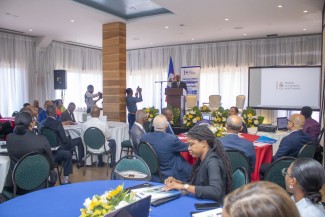On the face of it, The Gambia has a bright future. The tiny, West African sliver was known only to few until making headlines for a successful and democratic change in government after 22 years. The new government was quick to respond to the overwhelming global support and has wasted no time in showing the world that The Gambia is open for business. But myriad challenges remain.
The WTO's Trade Policy Review of The Gambia, taking place within the first year of the new administration, was an opportune time to reflect on the state of the economy and deliberate on the type of policies and actions that could help the country better participate in global trade.
The Gambia is amongst the smallest and poorest countries in Africa and the economy is heavily reliant on services (particularly tourism). The tourism industry was badly hit by the recent Ebola outbreak in the region. Underperformances of the tourism industry lead to contraction in GDP growth.
Other challenges to growth were highlighted including government debt, a narrow tax base and insolvent and costly state-owned enterprises.
Only 18.5% of national roads are paved and the port experiences congestion. There is limited capacity for the Government to formulate policies and corporate governance.
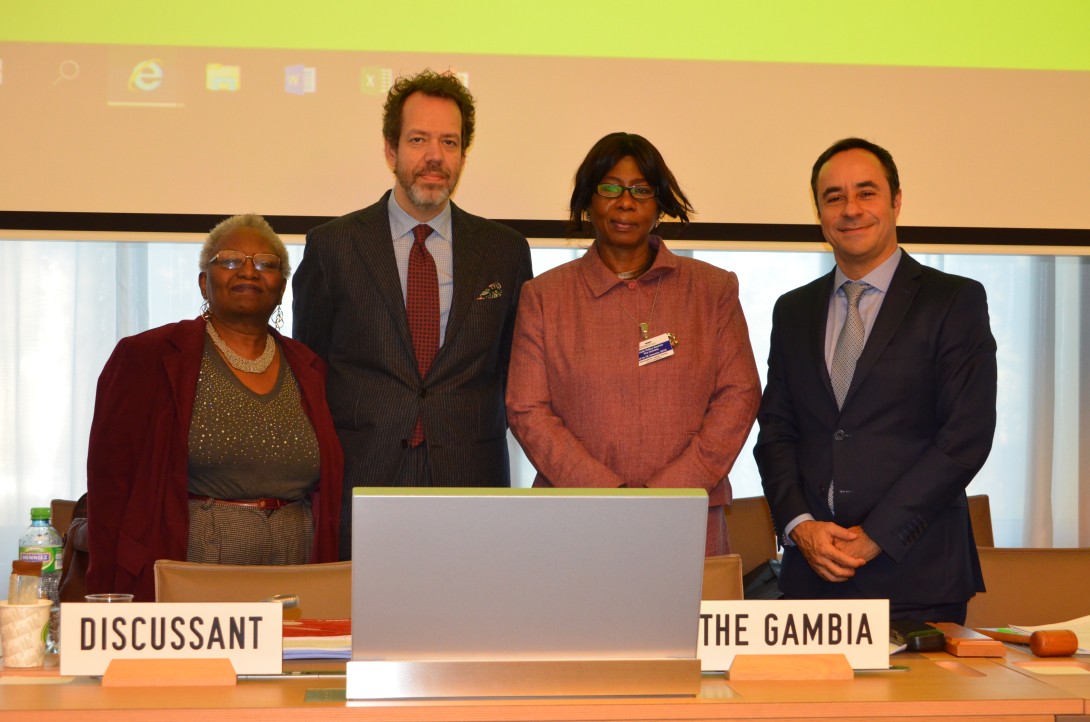
GENDER MATTERS
WTO Members commended The Gambia for maintaining an open trade and investment regime. Of particular note were tariff reforms through the Economic Community for West African States (ECOWAS), ratifying the WTO Trade Facilitation Agreement (TFA) and gender mainstreaming.
"Canada applauds The Gambia’s endorsement of the Declaration on Women and Trade at MC11 and look forward to cooperating with you in this respect."
Canada
The Gambia is one of the first WTO Members to include a chapter on Mainstreaming Gender in Trade in its Trade Policy Review Report. The Report notes the prioritization of sectors which are focused on creating opportunities for women such as fisheries, horticulture and micro, small and medium enterprises.
Gender is mainstreamed through the National Gender Policy 2010-2020 and the Private Sector Development Strategy 2015-2019. The Strategy identifies a number of gender issues that still need to be addressed, such as lack of adequate sex-disaggregated data, low skills and limited access to market opportunities for women entrepreneurs, and male-dominant attitudes of existing policies and laws.
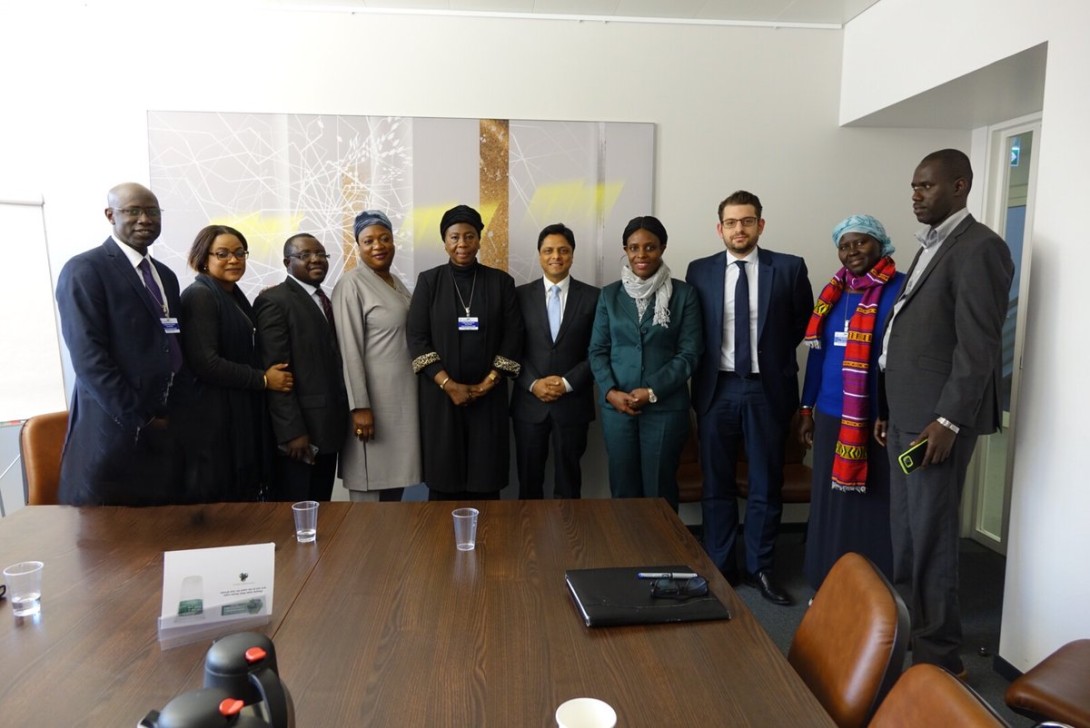
A FORGOTTEN STATE?
A number of countries saw huge trade and development potential and there was a wide call for increased assistance to The Gambia in its effort to better integrate in the global market.
"We urge all donors, bilateral and multilateral, to continue and increase their support to The Gambia in order to realize these noble efforts."
Rwanda on behalf of the African Group
Ambassador Daniel Blockert of Sweden, the discussant during the Gambia TPR, noted that The Gambia received lower development assistance than similar countries. Total Aid for Trade to The Gambia between 2006 and 2015 amounted to USD 343 million.
"The Gambia has been a recipient of relatively low levels of development aid.” Says Blockert. “If you compare with other countries on a similar level of development, it is obvious that The Gambia has not been the focus of donors.”
“In fact, after the World Bank visited The Gambia in 2017 one of their representatives called The Gambia a ‘forgotten state’ in terms of aid, and encouraged donors to get engaged."
While The Gambia has experienced dwindling technical cooperation and aid over the years, the recent change in government is expected to spur renewed donor interest. The government has already started ambitious cooperation with a number of development partners. The Enhanced Integrated Framework (EIF) has remained a strong partner since 2006.
"We have a strong and beneficial relationship with the EIF Secretariat which has been supportive during this period under review,” says Dr. Isatou Touray, Minister of Trade, Industry, Regional Integration and Employment, The Gambia. “The Gambia has successfully implemented two Tier 2 projects under the EIF, including a trade facilitation project.”
“We are officially opening an ultra-modern cargo facility on 19 February 2018. We look forward to closer engagement with the EIF Secretariat and development partners through the Aid for Trade Initiative to support The Gambia's trade and development needs."
“This is an interesting and exciting time for The Gambia, and we hope that the EIF may continue to make a meaningful contribution to the country's social and economic development,” says Jonathan Werner, Coordinator at the EIF Secretariat.
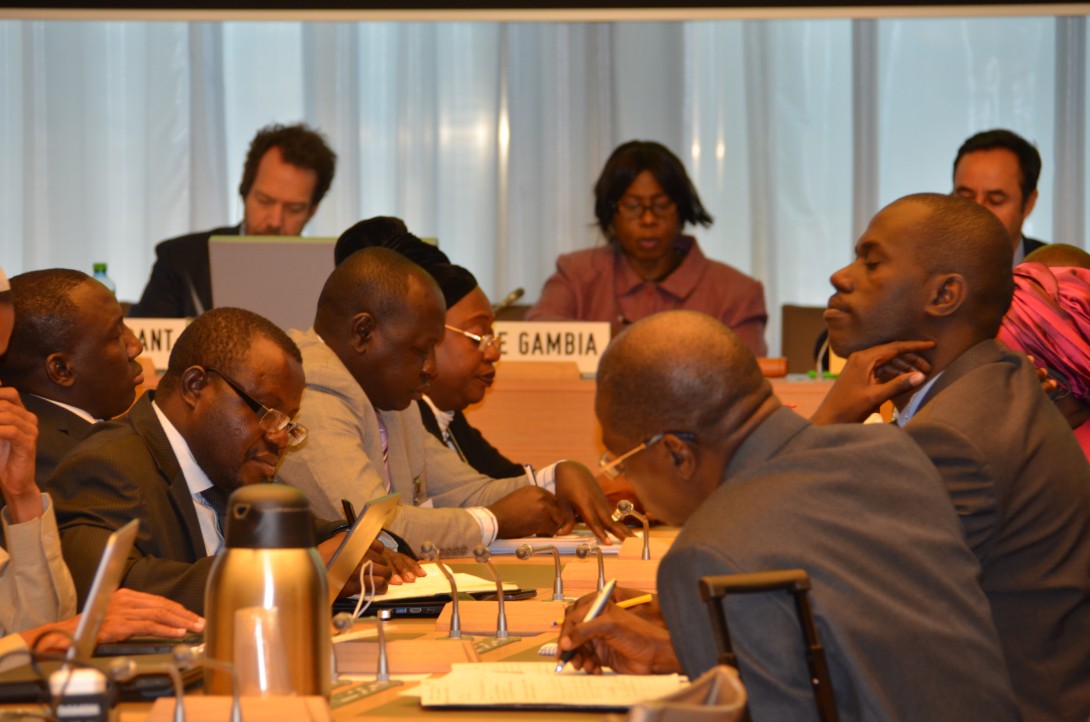
TAKING CENTRE STAGE
The Gambia took over the WTO main stage to give the trade and development community a taste of its vibrant colours and sounds. During the 2017 Aid for Trade Global Review, Vice President Aja Fatoumatta Tambajang, noted the importance of the Global Review in providing opportunities for countries like the Gambia to share experiences, learn from others and forge new partnerships. She outlined the government's plan to prioritize productive capacity development and competitiveness as well as to leave no one behind by emphasizing women, youth and social protection issues in the new National Development Plan
The Gambia also organized a high-level roundtable showcasing new trade and investment opportunities. Priorities were presented in a report on "Priority Trade Capacity Development Areas in The Gambia". The side event and accompanying social event were co-organized and sponsored by the WTO, EIF, ITC, UNWTO and WIPO.
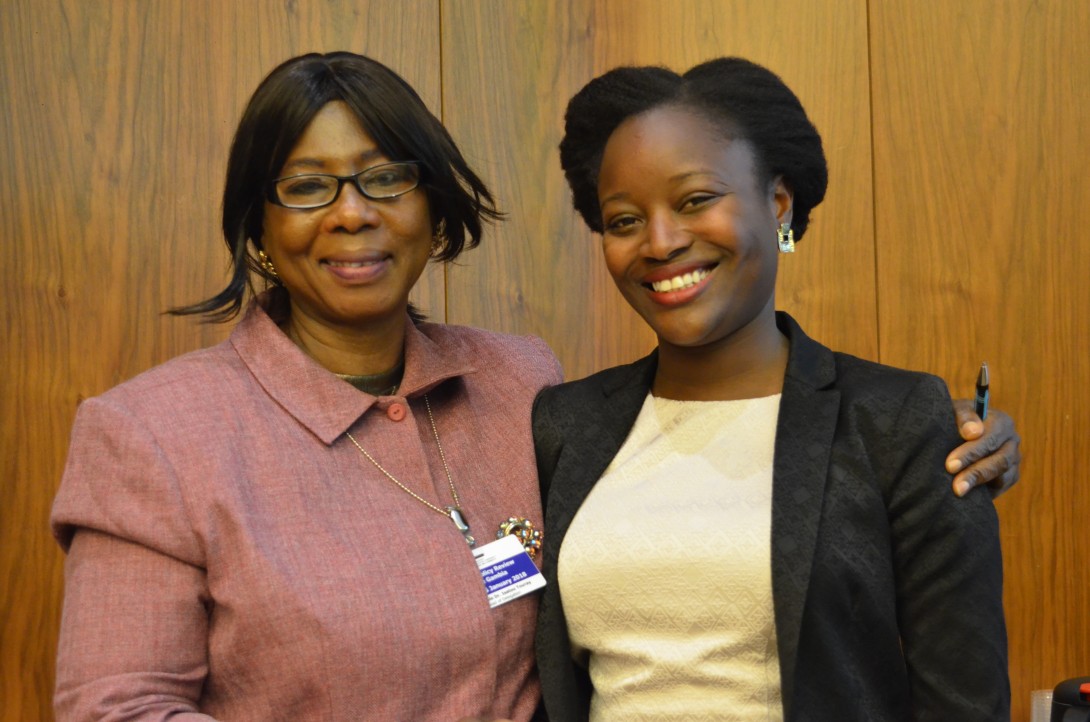
RECENT DEVELOPMENT ASSISTANCE
The EU is The Gambia's main donor, allocating €150 million in the 11th European Development Fund between 2014 and 2020.
The International Trade Centre's Youth Empowerment Programme has been working to support the country's efforts to develop trade capacity for inclusive economic growth, with a focus on creating jobs for youth and women.
Non-traditional partners such as China and India have recently announced new development cooperation deals. China signed a Memorandum of Understanding with the Gambia on Economy, Trade, Investment and Technical Cooperation.
The Gambia also announced new projects with the World Bank on energy and UNCTAD in formulating an Industrial Policy and Trade Strategy. The Gambia notified its TFA Category A, B and C commitments and expects further support to implement the Agreement. The soon-to-be-finalized National Development Plan will provide more impetus for the much needed development aid.
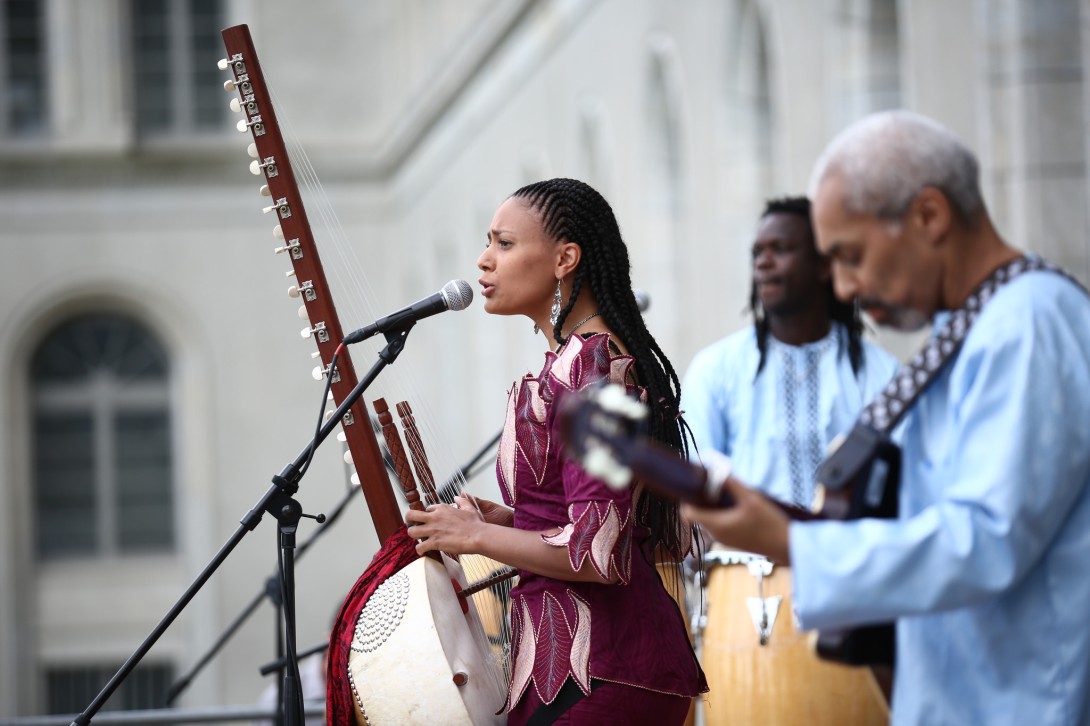
FROM THE KORA
The social event at the 2017 Aid for Trade Global Review featured a performance by The Gambian artist, Sona Jobarteh.
Sona Jobarteh is the first female Kora virtuoso to come from a prestigious West African Griot family. She is a pioneer in an ancient, male-dominated hereditary tradition that has been exclusively handed down from father to son for the past seven centuries. She's also an e-commerce pioneer, selling both her music and also traditional Gambian instruments online.
The Gambia has started consulting with WIPO on the WIPO Copyright Treaty and the WIPO Performances and Phonograms Treaty.
More information:
- Trade Policy Review WTO Secretariat Report
- Trade Policy Review Government Report
- Concluding Remarks by the Chairperson
Images:
See more images of the 2017 Aid for Trade Global Review on Flickr.
If you would like to reuse any material published here, please let us know by sending an email to EIF Communications: eifcommunications@wto.org.


